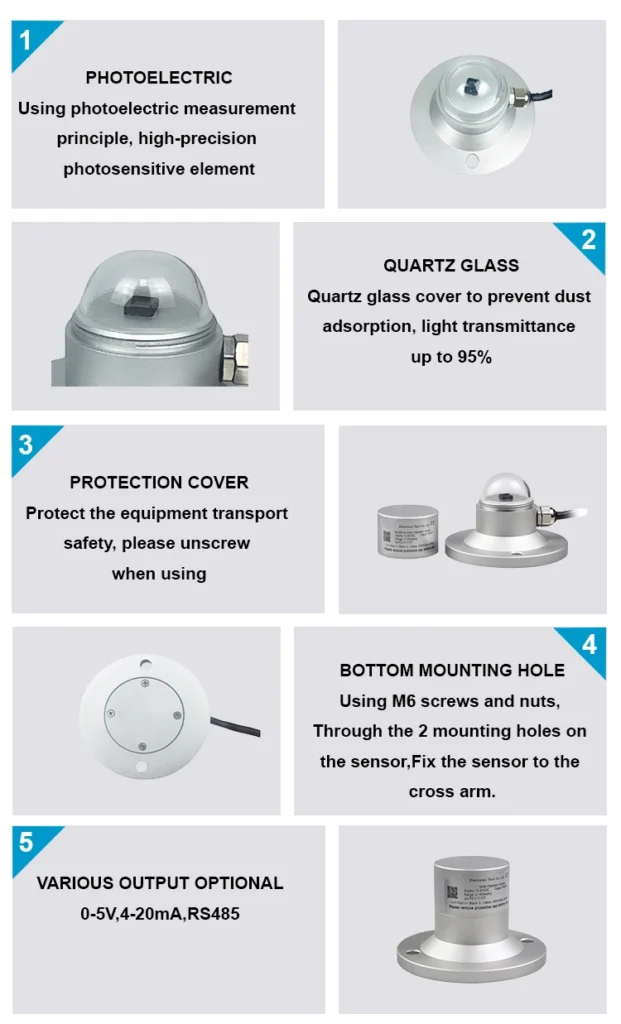What are uses of pyranometer?
**Solar Energy Assessment**
Pyranometers are key tools for measuring solar energy in solar power generation. They are very helpful in solar power (PV) systems. Engineers and developers look at solar energy sources.
This helps them figure out how much energy a solar power plant will make. They can also make solar panels better by changing how they are designed and where they are placed.
**Agricultural Research**
In farming, thermopile pyranometers help researchers look at light conditions that impact crop growth. They check how bright the light is and how good the light is for plants. This information helps farmers and scientists change how they water, fertilize, and plant crops. Crop production goes up, and resource use improves.
**Climate Research**
For climate studies, scientists use pyranometers to measure sunlight. These measurements have an impact on global climate systems. Long-term data on solar radiation helps scientists understand and predict changes in weather and temperature. This information helps make climate models more accurate.
**Building Energy Analysis**
In building science, pyranometers give important information about how much sunlight a structure gets. This data is key for designing energy-efficient buildings. It helps improve how buildings are positioned and find ways for passive solar heating. It also checks if shading systems are needed to lower cooling needs.
**Solar Water Heating Systems**
Pyranometers are useful tools. They show us how well solar water heating systems work. Engineers measure solar irradiance to find out how well solar thermal systems work. This helps them design and size systems for homes or businesses.
**Weather Monitoring**
In weather stations, pyranometers are used to measure incoming solar radiation. This is a key part of studying and predicting weather patterns.
The sensor model has high accuracy,fast response time and very wide spectral response.
Conclusion
In summary, type of pyranometer are useful tools in many fields. They help make solar energy solutions and improve farming. They also help with climate change studies, improve building designs, and make solar water heating systems better.
